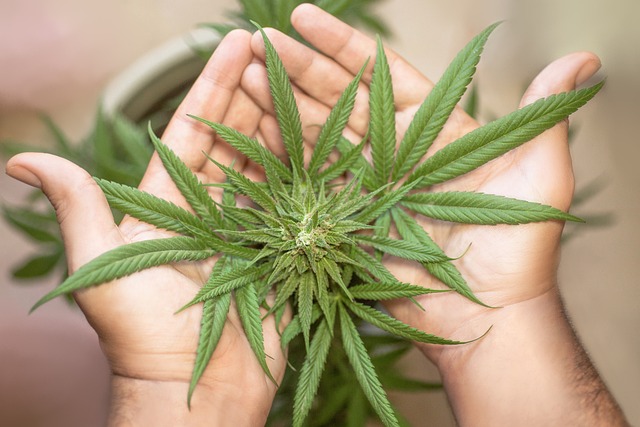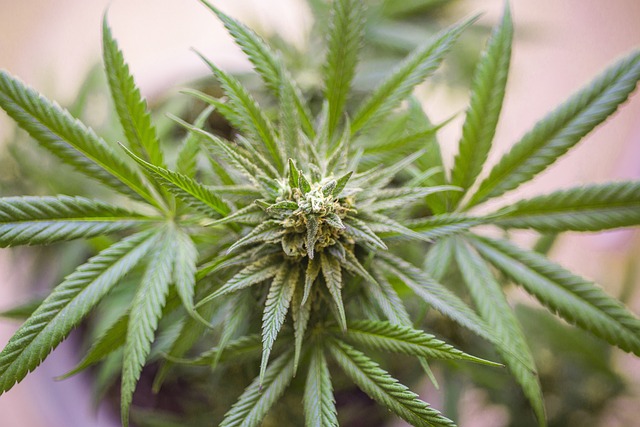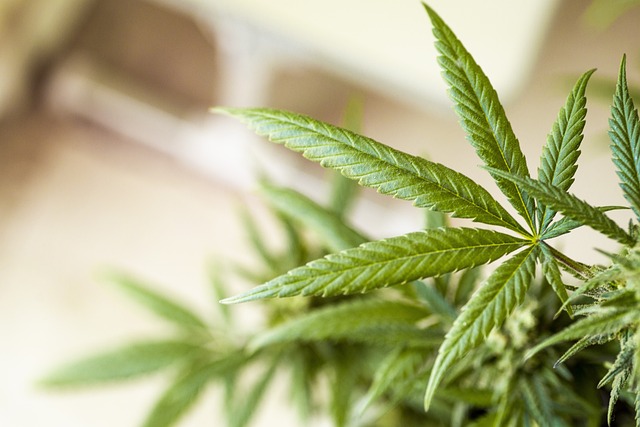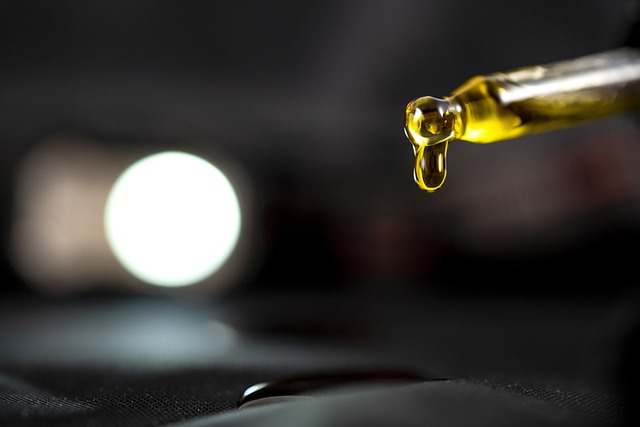2023 has marked a rise in interest around THCA (Tetrahydrocannabinolic Acid), a non-psychoactive cannabinoid found in the Cannabis sativa plant, which is legal in Alabama. With its anti-inflammatory, neuroprotective, and antiemetic properties, THCA is being explored as a natural wellness alternative for various health conditions without inducing psychoactive effects. The 2018 Farm Bill set the stage for this exploration by defining hemp derivatives like THCA as legal, provided they contain less than 0.3% delta-9-THC on a dry weight basis. In Alabama, consumers are now able to legally access THCA products, opening up potential health benefits without the high associated with traditional cannabis use. As research progresses, THCA's role in managing symptoms of chronic conditions is becoming increasingly recognized, positioning it as a promising therapeutic agent within the state's health and wellness industry. It's important for individuals to consult healthcare professionals when considering adding THCA to their health regimen, given its legal status and potential health benefits.
Explore the transformative potential of THCA flower, a non-psychoactive cannabinoid emerging as a natural wellness breakthrough. As it gains traction in legal markets across the United States, including Alabama, the significance of THCA is highlighted for its myriad health benefits. This article delves into the science behind THCA, distinguishing it from CBD and THC, and examines its medicinal properties. Discover how the entourage effect amplifies THCA’s therapeutic effects when combined with other cannabinoids. Learn about the legal procurement of THCA flower in Alabama, the best practices for cultivation, and the optimal ways to consume it. From pain relief to mental health support and antioxidant properties, uncover the benefits of THCA flower through scientific research and user experiences, all within the context of its legality in Alabama.
- THCA Flower: A Natural Wellness Breakthrough
- The Emergence of THCA in Legal Markets, Including Alabama
- Understanding THCA: Potential Benefits and Science Behind It
- THCA vs CBD and THC: What Sets It Apart?
- THCA Flower's Medicinal Properties: A Closer Look
THCA Flower: A Natural Wellness Breakthrough

The discovery of THCA (Tetrahydrocannabinolic Acid), the raw and natural precursor to the well-known psychoactive compound THC, has marked a significant milestone in the realm of natural wellness. While exploring the legalities of cannabis products can be complex, THCA-rich hemp flowers have emerged as a legal option for those interested in the potential health benefits they offer, as per the 2018 Farm Bill, which legalized hemp derivatives, including CBD and THCA, with less than 0.3% THC, in Alabama and across the United States. Unlike its psychoactive counterpart, THCA does not induce a high, making it an attractive alternative for individuals seeking wellness support without the mind-altering effects of cannabis. The therapeutic properties of THCA are being studied for their potential to alleviate inflammation, pain, and various symptoms associated with chronic illnesses. Users report that THCA flower may offer a calming effect, aid in sleep regulation, and provide relief from stress and anxiety, all without the intoxicating properties of traditional cannabis products. This natural wellness breakthrough has opened new avenues for holistic health maintenance, offering a promising alternative that aligns with legal frameworks and personal preferences. As research continues to unfold, the potential of THCA flower as a complementary health strategy becomes increasingly evident, offering hope and relief to many seeking natural solutions.
The Emergence of THCA in Legal Markets, Including Alabama

As the legal landscape for cannabis-related compounds continues to evolve, THCA (Tetrahydrocannabinolic Acid), a non-psychoactive form of THC found in raw cannabis plants, has gained attention within wellness circles. With the recent legislative changes, including Alabama’s approval of certain hemp-derived compounds, consumers are increasingly exploring the potential benefits of THCA. The emergence of THCA products in legal markets signifies a shift towards more holistic and natural health remedies. In Alabama, this has led to a burgeoning interest in THCA flowers, which users claim offer a range of wellness benefits without the psychoactive effects associated with traditional THC. As awareness spreads about the therapeutic properties attributed to THCA, including its anti-inflammatory and neuroprotective qualities, it’s clear that this compound is becoming a focal point in the health and wellness industry within the state. The availability of THCA legal in Alabama has opened doors for both research and consumer experimentation, positioning the state as a new frontier in the exploration of cannabinoids’ full potential. Retailers and producers are adapting to meet the growing demand, ensuring that these products are accessible and compliant with local regulations, thus integrating THCA into the evolving tapestry of legal cannabis markets across the United States.
Understanding THCA: Potential Benefits and Science Behind It

Cannabidiolic acid (THCA) is a non-psychoactive cannabinoid found in the cannabis plant, which has garnered attention for its potential therapeutic properties. As of my knowledge cutoff in 2023, THCA is legal in Alabama under certain conditions, as it is considered a hemp derivative with less than 0.3% THC by dry weight. Research into THCA’s effects has shown promising signs for its health benefits, which may include anti-inflammatory, analgesic (pain-relieving), and neuroprotective properties. Scientific studies suggest that THCA interacts with the body’s endocannabinoid system, influencing various functions including mood, appetite, pain sensation, and immune responses.
Furthermore, preliminary research indicates that THCA may offer benefits for a range of conditions. It has been studied for its potential role in managing symptoms associated with multiple sclerosis, arthritis, and neuropathy due to its anti-inflammatory effects. Additionally, there is ongoing research into its neuroprotective properties that could be beneficial for neurodegenerative diseases. The science behind THCA’s benefits hinges on its ability to bind with the CB1 and CB2 receptors within the endocannabinoid system, which may offer a natural approach to alleviating certain symptoms without the psychoactive effects associated with THC. As regulations evolve and research progresses, a clearer understanding of THCA’s full potential and its legal status in various states, such as Alabama, will become more defined.
THCA vs CBD and THC: What Sets It Apart?

Cannabinoids are a class of compounds found within the Cannabis sativa plant, each with distinct properties and potential health benefits. Among these, Tetrahydrocannabinolic Acid (THCA) has garnered attention for its therapeutic effects, particularly in contexts where cannabis use is regulated and THCA is legal, such as in Alabama. Unlike its well-known isomers Delta-9-Tetrahydrocannabinol (Delta-9-THC) and Cannabidiol (CBD), THCA possesses a unique profile that sets it apart within the cannabinoid realm.
THCA is the raw, non-psychoactive precursor to Delta-9-THC, which forms when cannabis is heated or burned. It’s found naturally in raw cannabis plants and certain cannabis-derived products. THCA is reported to exhibit anti-inflammatory, neuroprotective, and potential antiemetic properties, making it a subject of interest for various medical applications. Its legal status in Alabama allows researchers and consumers alike to explore its benefits without the psychoactive effects associated with Delta-9-THC. On the other hand, CBD is another non-psychoactive cannabinoid known for its calming and analgesic properties. It’s widely recognized for its role in promoting overall wellness without intoxication. The distinct differences between THCA and both CBD and Delta-9-THC highlight the complexity of the cannabis plant and underscore the importance of ongoing research to fully understand each compound’s unique contribution to health and wellness. As such, the exploration of THCA legal in Alabama is an intriguing avenue for those seeking the potential benefits of cannabinoids without psychoactive effects.
THCA Flower's Medicinal Properties: A Closer Look

THCA, or Tetrahydrocannabinolic Acid, is a natural compound found in the Cannabis sativa plant that has garnered attention for its potential therapeutic properties. Unlike its well-known counterpart THC (Tetrahydrocannabinol), THCA is non-psychoactive, making it an appealing option for those seeking medicinal benefits without the psychoactive effects. As of the knowledge cutoff in 2023, THCA flower’s legal status varies across different states in the U.S., with Alabama having specific regulations regarding its use. In Alabama, THCA flower can be legally used if it contains less than 0.3% delta-9-THC on a dry weight basis and is sourced from hemp compliant with the 2018 Farm Bill. This legal distinction is crucial for consumers in Alabama who are interested in exploring the potential wellness benefits of THCA.
Research into THCA’s medicinal properties suggests it may offer anti-inflammatory, neuroprotective, and antiemetic effects. Preliminary studies indicate that THCA could be beneficial for managing pain and inflammation without the psychoactive side effects associated with THC. Additionally, its potential role in neuroprotection has been explored in various preclinical trials, hinting at its possible application in treating neurological disorders. The anti-emetic properties of THCA have also been observed, which may aid individuals undergoing chemotherapy or suffering from nausea and vomiting. As with any supplement or medication, it is advisable to consult with a healthcare provider before incorporating THCA flower into one’s wellness regimen, especially given the nuanced legal landscape surrounding cannabinoids like THCA in states such as Alabama.
THCA-rich flowers have emerged as a notable wellness breakthrough, capturing attention within the legal market, particularly in states like Alabama where its status is now clarified. The scientific community and consumers alike are intrigued by the potential benefits of THCA, which differ from those of CBD and THC. As this article has explored, understanding THCA’s unique properties offers a promising perspective on its medicinal applications. For those in Alabama and beyond, the legal landscape now welcomes the exploration of THCA as a natural wellness option, positioning it as a significant player in the evolving world of cannabinoids. With further research, THCA may yet reveal its full potential to contribute positively to health and well-being.
